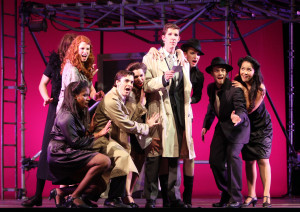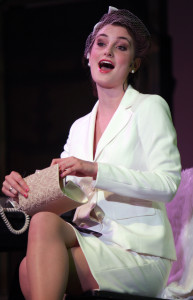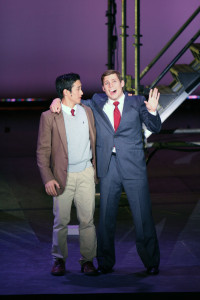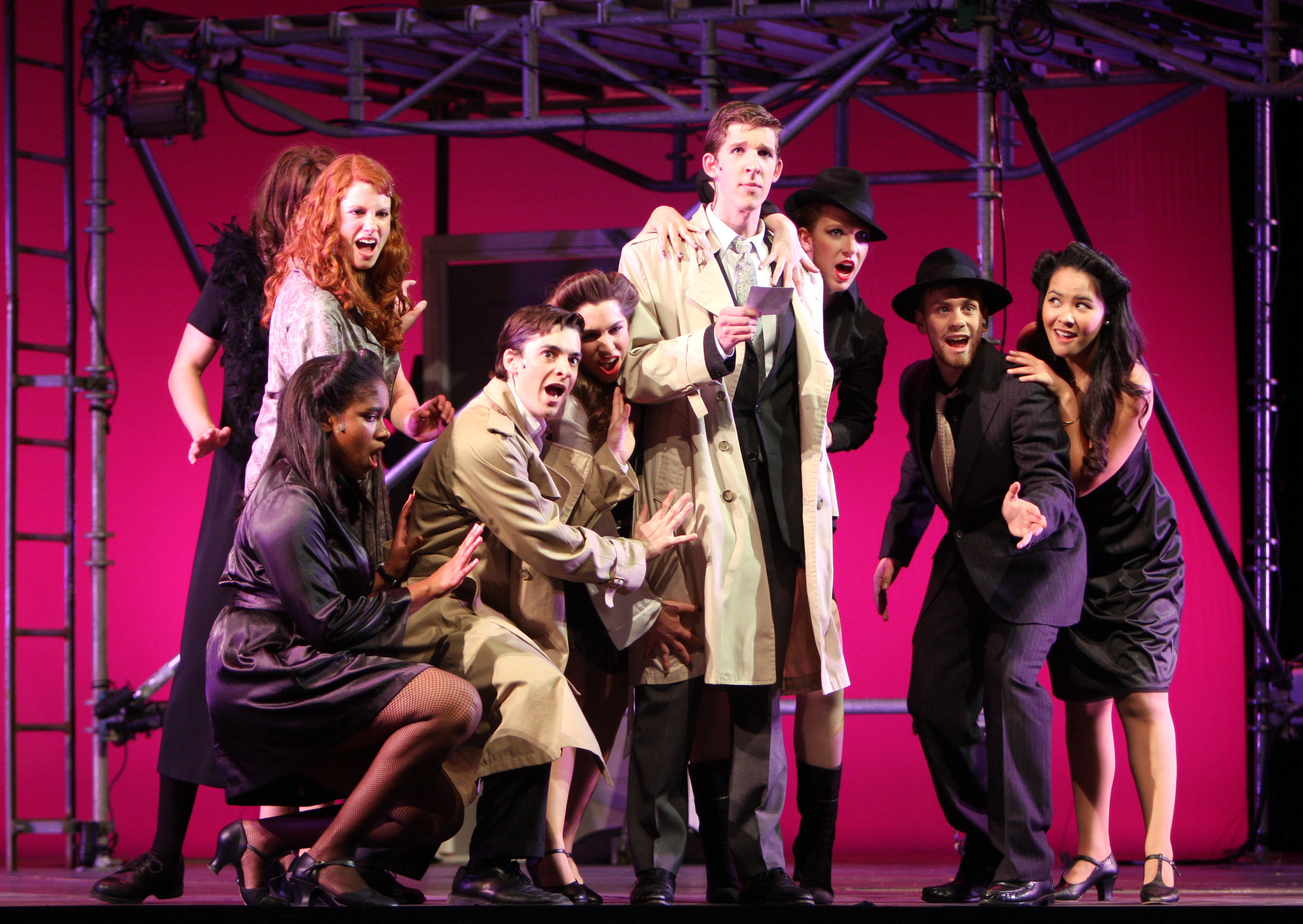
Ram’s Head’s spring musical production in recent years has been largely about putting on formidable versions of recognizable shows that everyone can enjoy. This year, the board made a decision to choose something riskier, something less famous: the 1989 musical comedy “City of Angels,” written by Cy Coleman, David Zippel and Larry Gelbart. This risk paid off well for the company.
The musical is divided between two story lines, connected through the double casting of one actor in two parts. In the real world, Stine, played brilliantly by co-terminal student Julian Kusnadi ‘11, is a troubled screenwriter, working in the power-hungry Hollywood system. Along the way, he has to deal with a whole host of alluring and exciting characters. His boss is a successful and boisterous film producer and director named Buddy Fidler, played by Graham Roth ‘12. He is constantly rewriting and claiming ownership over Stine’s story. But more importantly, like in any good Hollywood story, many of his problems arrive as a pair of long legs in a well-cut dress. Stine’s wife Gabby (Anneka Kumli ‘13), his quick-witted secretary (Clare Bruzek ‘12), the director’s wife (Katie Straub ‘14) and a new starlet on the rise (Addy Mendoza ‘13) all complicate Stine’s life in various ways.

What is twice as interesting is the movie that Stine is writing. As the show progresses, the audience watches the movie come to life as Stine projects a taller, cooler version of himself in the movies—Private Detective Stone, keenly portrayed by Weston Gaylord ‘15. Along the way, Stone meets characters that are seemingly ripped right out of writer Stine’s life. Coincidentally, Stone has a capable secretary and an alluring ex-wife, must deal with a family with a powerful wife and, like any film noir, bears a host of secrets.
The movie in the mind of screenwriter Stine is where the musical truly succeeds. Director Benno Rosenwald ‘11 draws inspiration from classic films such as “The Maltese Falcon” and “The Big Sleep.” This heightened sense of drama and intrigue bubbles through in the film with the fast and sexy dialogue, which coupled with the elegant black and white set design makes for a compelling directorial vision. The musical itself also draws heavily on the 1940s influence; much of the music is tinged with a jazzy edge that builds on the excitement of the rest of the show. Smooth jazz crooner Jimmy Powers, played by Rob Biedry ‘15, along with the chorus of Angel City all work together to bring the music to the forefront of the ensemble.

Fortunately, all of the singers on stage are able to handle the technical jazz rhythms and melodies pulsing throughout the show. Leads Kusnadi and Gaylord play off of each other well and share some of the most passionate and invigorating songs. However, the show is mostly an ensemble production; each of the supporting players gets a moment to shine and each takes full advantage of his or her time in the spotlight. Highlights include Bruzek’s sultry secretary, Mendoza’s revealing performance and Roth doing pretty much anything on stage—you don’t need to hire a private detective to realize that Roth truly steals the show.
Amid the high production values and the talented singers on display, one thing is painfully obvious. Even if the existing show doesn’t always meet lofty expectations, the cast and crew are incredibly passionate and dedicated to the show and this love for the production shines through every scene.
